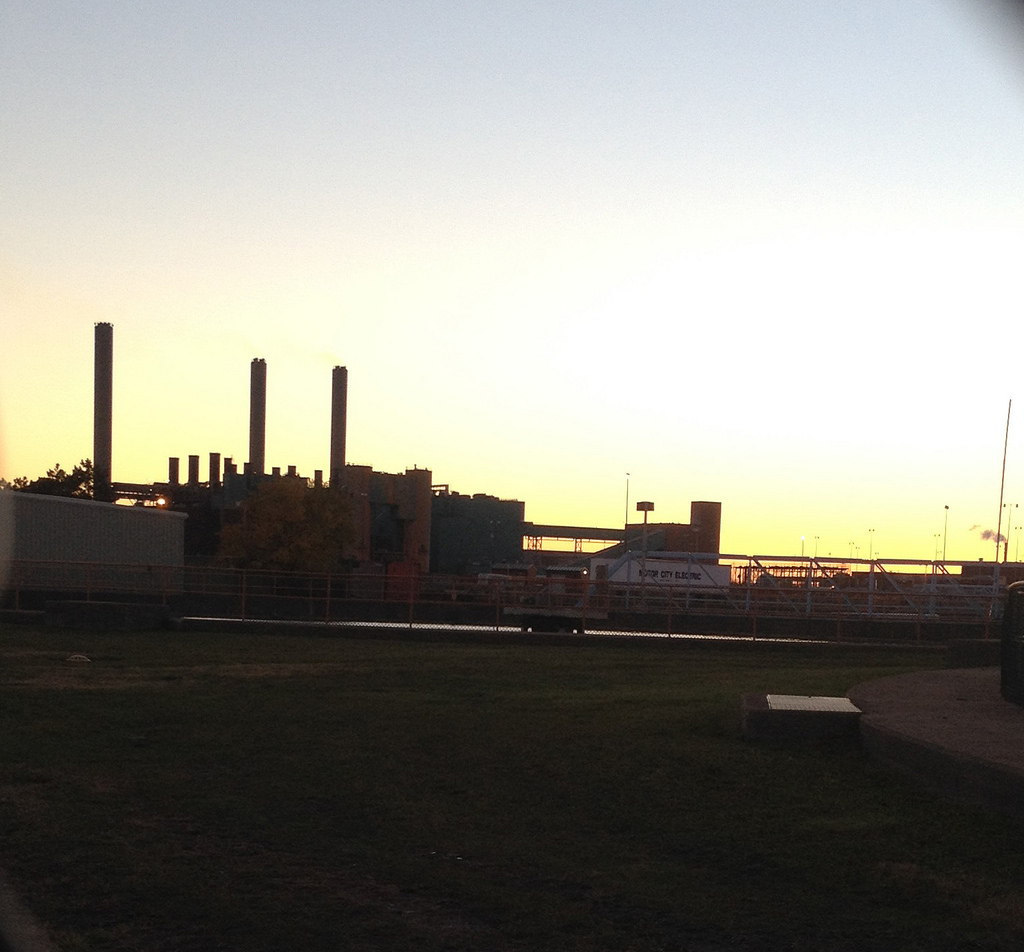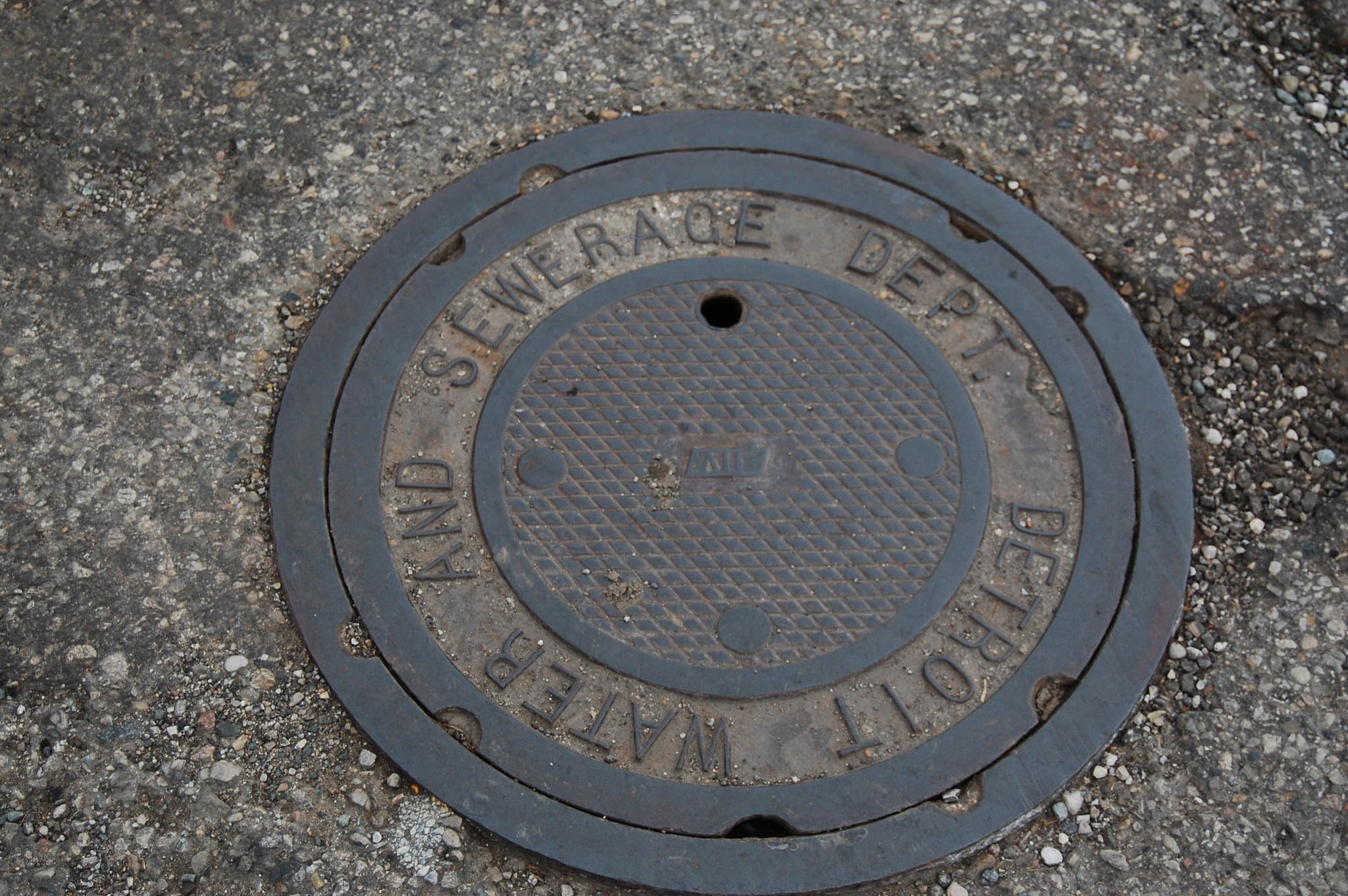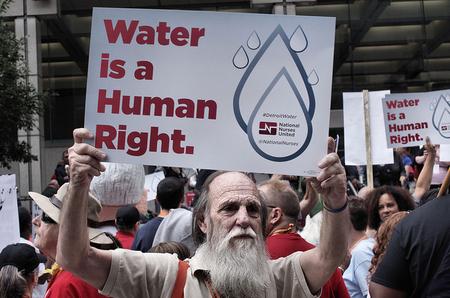The Detroit Bankruptcy and the Regional Water Authority
The Great Lakes Water Authority was a product of the bankruptcy. What’s next for southeast Michigan customers?

By Sarah Cwiek
Michigan Radio, the Detroit Journalism Cooperative
Detroit’s bankruptcy case produced the Great Lakes Water Authority, a new regional organization that oversees water and sewer services to much of southeast Michigan.
Supporters say it means more regional cooperation, and better management of its huge water system. But the Authority also has plenty of skeptics.
That clash is nothing new to the region, “That city versus suburbs, or suburbs versus city mentality, that really prevailed over the past several decades,” says Nick Schroeck, director of the Transnational Environmental Law Clinic at Wayne State University.
It’s a long history, as Detroit’s water system is one of the nation’s oldest and largest. As the metro area grew and sprawled, Detroit kept control of the central infrastructure even as more suburbs tapped in. That meant Detroit controlled water rates, which didn’t make its suburban customers too happy.

“Water and sewer rates are extremely high, and have been going up substantially over the past 10 years,” says Brian Baker, the budget and finance director in Sterling Heights who is Macomb County’s representative on the Great Lakes Water Authority board.
There had been talk of regionalizing Detroit’s water system for years. But disagreements over money and politics kept getting in the way.
Enter the Detroit bankruptcy—and federal judges determined to strike a water deal behind courtroom doors during the confidential mediation process.
What resulted was a complicated agreement that passed muster from the judge who presided over the case.
“I’m very pleased with the accomplishments that District Judge Cox, working as the mediator there, has been able to create for the Great Lakes Water Authority,” says Judge Steven Rhodes. He’s talking about fellow federal judge Sean Cox, the behind-the-scenes guy who hammered out the water authority deal.
Judge Cox knows the Detroit water and sewerage department well. He was more or less in charge of it until 2013, when he released the Detroit water department from decades of federal oversight for continued wastewater violations.
A year out of bankruptcy, Judge Rhodes has high hopes for the new Authority.
“My hope is that that model will serve as an example of regional cooperation in many other kinds of endeavors that the governments in southeast Michigan can look to,” he says.

Rhodes says a regional water authority is in everybody’s best interest. But how so?
Jim Fausone chairs the current Detroit board of water commissioners. The board will likely cease to exist starting next year, when the authority is slated to take over operating the water system. “This water and wastewater system that is such a capital-intensive entity, needed to get separated and stand up on its own, and get its own improved credit ratings for bonds, which would lower everybody’s costs in the region,” he says.
So that’s part of the story. A regional authority leaves the Detroit water department behind — along with its legacy of financial mismanagement and corruption. In theory, that means the authority can issue new bonds or refinance old debt at lower interest rates.
So do those savings translate into long-term relief on your water bill? Probably not.
“When we sell water and sewer services to the wholesale customers, we’re providing somewhere between 20 and 40 percent of their costs, with the other cost being a local cost of the maintenance of its local distribution system,” says Bob Daddow, a deputy Oakland County executive and chair of the new Great Lakes Water Authority board.
So there’s more to your water bill than just the base rates.
How much can we expect the new arrangement to keep those base rates reasonable, though?
When the Great Lakes Water Authority was first announced, officials said that rate increases would be held to 4 percent per year—or no deal.
“That promise went out the window almost as soon as it was made,” says state Rep. Kurt Heise, (R-Plymouth Township). He’s not too happy with how the Authority was put together. Like some in the Detroit suburbs, he thinks the deal is too rich for Detroit.
“There’s a disconnection that this is a big government takeover, and that we are paying a lot of money to the city of Detroit and not getting any value in return,” Heise says.
Here’s how the Authority will basically work.
Detroit continues to own the whole water and sewerage system, but leases infrastructure outside city limits to the Authority.
In return, the Authority pays Detroit $50 million a year, tagged for improvements to city water infrastructure, And it takes over operations for the whole system, including the drinking and wastewater treatment plants. Even the architects admit it’s not perfect. But they say we’ll all be better off in terms of both rates and infrastructure with the new Authority.
Heise disagrees on both counts. But suburbanites aren’t the only ones skeptical about the Authority. So is Detroiter Nicole Hill. She’s not convinced anything will really change.
“Because right now, we’re a year out of bankruptcy and you’re still in the same boat. Why? Because people still can’t afford to pay their bills,” she says.
Hill comes at it from a completely different perspective, though. Her home’s water was shut off twice, for what she says were billing errors. That led to a nightmare of bureaucracy and unaffordable payment plans.

During the bankruptcy, the water department started mass water shutoffs in an effort to deal with “bad debts”—meaning thousands of delinquent customers.
Department and some city officials said it was an overdue crackdown. Critics called it an inhumane and ham-fisted effort to fix systematic problems in just a few months.
One thing is for certain: the move was meant to reassure wary bondholders that the department was serious about collecting revenues.
It did offer delinquent customers a chance to get on payment plans. But Hill calls those plans “warped.”
“You have to pay that plus your current bill in its entirety in order to be on the budget plan. The one time that you can’t pay it in full, you get off, removed from the budget plan,” she says.
Data seems to bear out critics’ complaints about the payment plans.
After 9 months of the mass shutoffs, just 300 of the nearly 25,000 people put on payment plans were able to keep up.
The Great Lakes Water Authority will set aside a portion of its revenues to help low-income customers with water bills. But many who watched the Detroit mass shutoffs unfold say that plan just doesn’t cut it.
Wayne State University’s Nick Schroeck says there’s a puzzle at the heart of this whole water system question.
“How can we provide drinking water to our most vulnerable population…and make sure that we’re still capturing some revenue,” he says.
It may be way too early to tell whether the Great Lakes Water Authority can solve that puzzle—and make the kind of infrastructure improvements the whole system desperately needs.
And Great Lakes Water Authority board chair Bob Daddow agrees.
Overall, he’s optimistic the Authority is starting out in “a good position” to do that but he says he’s “not making any promises.”
In the meantime, Daddow says everyone is moving “at breakneck speed” to get things finalized in the next few weeks because the Authority is tentatively set to take over operations of the whole system January 1.
The biggest remaining hurdle also harkens back to the bankruptcy—getting just over half of the Detroit water system’s bondholders to sign off on the new arrangement.

